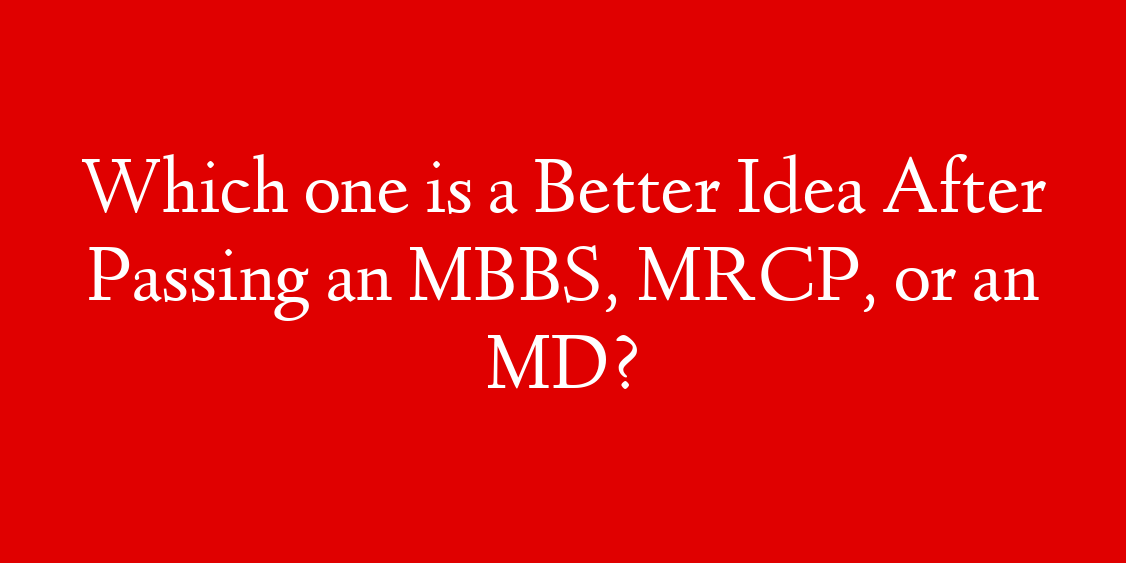Which one is a Better Idea After Passing an MBBS, MRCP, or an MD?
After completing MBBS, many medical professionals are faced with a crucial decision: should they pursue an MD or MRCP? It’s not an easy decision, as both options have their pros and cons. In this article, we’ll explore the differences between MRCP and MD programs, their career opportunities, and the prerequisites needed for both.
What is MBBS?
MBBS stands for Bachelor of Medicine and Bachelor of Surgery, and it’s a medical degree program that provides students with a basic understanding of medicine and surgery. It is the first step for individuals who aspire to become medical professionals, as it provides them with the necessary knowledge and skills to pursue further studies in medical fields.
What is MRCP?
MRCP, or Membership of the Royal Colleges of Physicians, is a postgraduate medical degree program that’s offered by the Royal College of Physicians in the UK. It’s a program that’s designed for medical professionals who want to specialize in internal medicine, and it’s considered to be one of the most prestigious qualifications in the field.
What is MD?
MD, or Doctor of Medicine, is a postgraduate medical degree program that’s offered by medical schools in the US, Canada, and other countries. It’s a program that’s designed to prepare medical professionals for careers in clinical practice and research.
MD vs. MRCP: Differences in Curriculum
The MD program in the US and Canada is typically a four-year program that covers a broad range of medical disciplines, including anatomy, pharmacology, and clinical practice. The curriculum is designed to provide students with the knowledge and skills they need to become competent physicians, and it typically includes a combination of classroom lectures, clinical rotations, and research.
On the other hand, the MRCP program in the UK is a three-year program that’s designed to provide medical professionals with the knowledge and skills they need to specialize in internal medicine. The curriculum is more focused on the diagnosis and management of complex medical conditions, and it includes a combination of classroom lectures, clinical rotations, and exams.
Career Opportunities
Both MD and MRCP programs offer a range of career opportunities, but the paths are slightly different. MD graduates can pursue careers in a wide range of medical fields, including primary care, specialty medicine, research, and academic medicine. MRCP graduates, on the other hand, are typically more specialized, and they often pursue careers in internal medicine or subspecialties, such as cardiology, gastroenterology, or endocrinology.
Prerequisites
The prerequisites for MD and MRCP programs differ, but both require significant academic achievements. To enter an MD program, students must first complete a Bachelor’s degree in a related field, such as biology, chemistry, or biochemistry. They must also pass the MCAT (Medical College Admission Test) and complete relevant work experience.
To enter an MRCP program, students must first complete an MBBS or an equivalent degree program. They must then pass the MRCP Part 1 and Part 2 exams, which test their knowledge and skills in internal medicine.
FAQs:
Q: Is MRCP recognized globally? A: Yes, MRCP is recognized globally as one of the most prestigious medical qualifications in internal medicine.
Q: What is the passing rate for MRCP exams? A: The passing rate for MRCP exams varies from year to year, but it’s typically around 40-50%.






